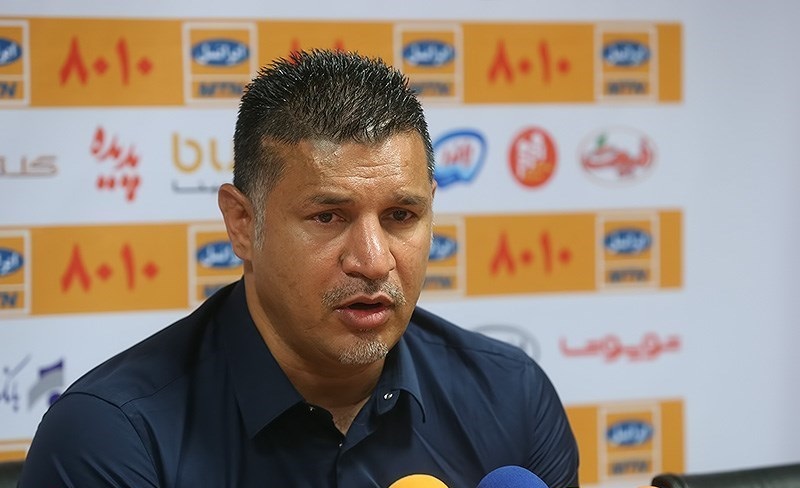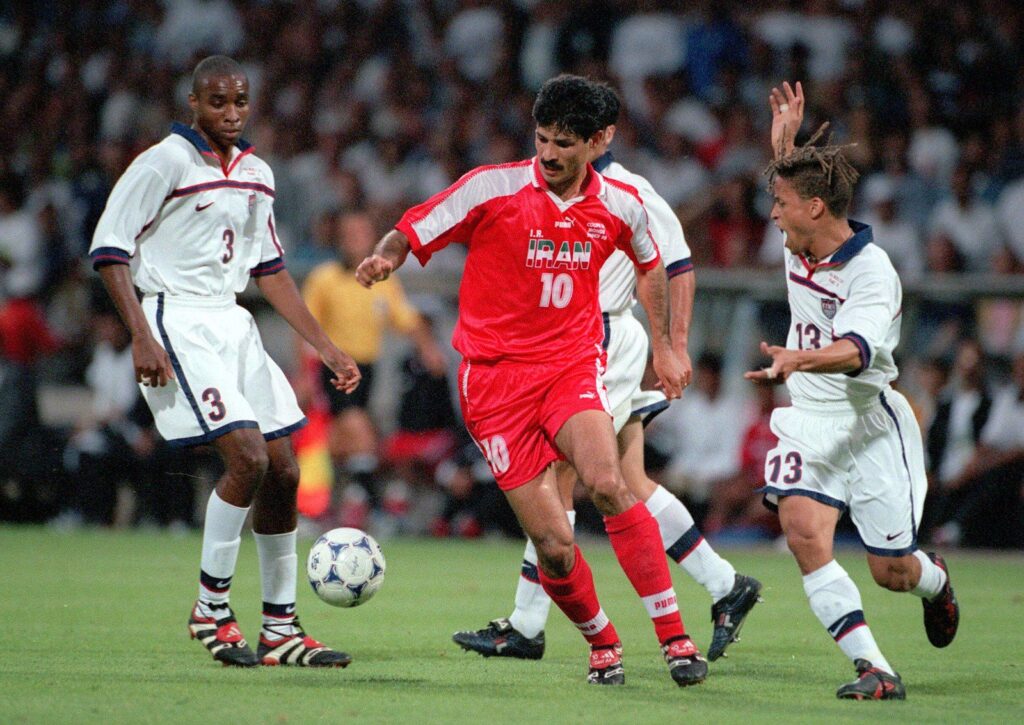
Iranian football legend, Ali Daei, stated on Monday 28 November that he has been the target of intimidation, including death threats, after publicly backing the ongoing protests in Iran triggered by the death of Mahsa Amini in September.
Ms. Amini, a 22-year-old Iranian Kurdish woman originally from Saqqez, died on Friday 16 September – three days after her arrest and detention by the notorious so-called “morality police” while visiting Tehran in the company of her brother.
Ali Daei scored an incredible 109 goals in international football during his playing career, which long remained the record – a tally many football pundits believed might be unsurpassable in the modern game, until it was overtaken by the enduring Portuguese talisman, Cristiano Ronaldo, in September 2021. He is widely regarded as one of the greatest Asian footballers of all time.
Mr. Daei’s record was all the more remarkable given that he came into the professional game relatively late on – having originally played at amateur level – and did not make his debut for the Iranian national team until he was 24-years-old back in 1994. He went on to become one of the leading players of a golden generation during the 1990s that captured the imagination, and uplifted the spirits, of the nation as well as those of admirers from much further afield – a team that is rightly regarded as one of the best, if not the best, to take to the pitch in Iran’s name and still warmly remembered 25 years on from its heyday. Mr. Daei played in Iran’s classic 2-1 victory over the US national football team at the 1998 World Cup in France, Iran’s first appearance at the tournament for 20 long years. He also enjoyed successful club spells at Arminia Bielefeld, Bayern Munich, and Hertha Berlin in Germany.
Mr. Daei publicly declined his invitation from FIFA to attend the 2022 World Cup in Qatar, stating that he had made the choice owing to the Islamic Republic authorities’ deadly crackdown on the recent protests, in solidarity with the bereaved families of the fallen demonstrators and the people of Iran.
“I have received numerous threats against myself and my family in recent months and days via certain organisations, media, and anonymous persons,” Mr. Daei stated in a post on his official Instagram account.
“I was always taught [the values of] humanity, honour, patriotism, and freedom… What do you hope to achieve with such threats?” he added in a riposte to his tormentors.
Significantly, in the same post, Mr. Daei called for the “unconditional release” of all those detained in the recent crackdown in Iran and currently languishing in the regime’s prisons and detention centres.
Earlier in November, Mr. Daei had made it clear that he would not be travelling to Qatar for the World Cup despite receiving a prestigious invitation from the organisers of the tournament. He stated that he wished to “remain with my compatriots and to express my sympathy with all those who have lost loved ones” in the ongoing regime crackdown that is convulsing Iran.
His most recent comments, regarding the serious threats he has received, came on the eve of Iran’s World Cup match against the US in a repeat of the famous 1998 showdown. Iran required either a win or a draw to progress from the group stages of the tournament to the round of 16 for the first time in its history. However, on the night, the game ended up being a pale imitation of the 1998 encounter – with Iran eliminated from the competition having been deservedly beaten 1-0 by a better US team. The heroic exploits of Mr. Daei’s team that summer night in Lyon seemed but a distant memory.

There has been fevered debate and intense scrutiny of the current national football team as the protests rage on in Iran in what have arguably become the biggest challenge and most problematic manifestation of popular dissatisfaction towards the Islamic Republic regime since the 1979 Revolution.
In early October, upon his return from a trip abroad, Mr. Daei’s passport was seized by the authorities in Iran owing to the initial comments he had made on Instagram regarding the death of Ms. Amini along with his sharp criticism of the regime’s brutal repression of the ensuing protests. His passport was reportedly returned to him not long afterwards in what many interpreted to be a warning from the regime.
On Thursday 24 November, the regime sent a firm signal of its intent by arresting the prominent Iranian Kurdish footballer, Voria Ghafouri – a veteran member of the national team whose non-selection for the World Cup was widely regarded as suspicious – following his outspoken support for the protests and his open imploring of the regime to “stop murdering” Kurdish Iranian people. With grave concerns growing for his safety and wellbeing – with the regime’s complete blackout of any information pertaining to his current state or whereabouts – Mr. Ghafouri was released from detention following the payment of a reportedly huge bail bond along with an express undertaking that he would present himself before the security forces as per their requirements. (However, there are also some reports that he has not been released and was instead transferred to detention in Tehran from the west of Iran where he had originally been arrested.)
In an interview with Ali Daei that featured in the October 2021 issue of GQ Middle East, following the overtaking of his international goal record by Cristiano Ronaldo the month before, he concluded with words which take on an increased resonance just over a year later… “I will never forget the love that Iranian people have shown me – particularly in the many years after my football career finished […] and the love I have for them is just as strong. For me, it is important that people don’t remember me just as Ali Daei the football player, I want them to remember me as Ali Daei the human being.”












 Posted in
Posted in 











